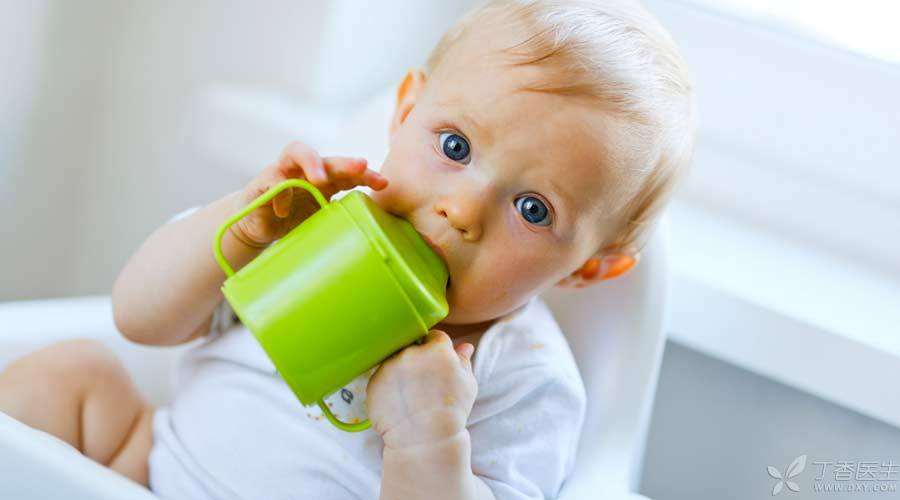
People often say that children earn the best money. This is especially true in China-the price of any food can be doubled by adding prefixes such as “baby”, “child”, “pregnant woman” and so on-and there has never been no shortage of customers under the guidance of the “traditional wisdom” that “there is a reason why you are expensive”.
Baby water is a typical example.
Many parents worry that pure water lacks minerals and cannot provide enough nutrients. Tap water is [hard water], which will harm infants’ delicate kidneys.
Therefore, baby water, which is more expensive than milk, has entered parents’ vision.
What kind of water is baby water? In fact, there is currently a lack of standards in China.
Baby water refers to drinking water that is claimed to be specially produced for infants. Generally speaking, manufacturers will specifically claim that baby water is [strictly sterile] [low in sodium and softer] [with less burden on kidneys], while ordinary water [either too high or no mineral elements, or even hard water is harmful to infant health and is not suitable for infants to drink].
In fact, there is no standard definition of [infant water] on the market at present-there is no standard for infant drinking water in our country at present, and the currently implemented drinking water standard (GB5749-2006) in our country is applicable to a wide range of people, but it is not only aimed at infant people.
Therefore, as long as drinking water standards are met, Manufacturers can call it [baby water] (whatever you say, there is no standard anyway). Generally speaking, manufacturers will claim that these baby water are stricter in some indicators and better for infants. However, this is only what the manufacturers say, and academia and regulatory agencies have not recognized that the so-called baby water has the benefits that the manufacturers say.
It should be emphasized that babies do not need to drink water before adding supplementary foods. Breast milk or formula milk can provide them with enough water. The stomach capacity is limited, and feeding water will affect milk consumption. Therefore, the purpose of baby water is to brew milk powder.

Baby water has various [benefits]? Either the concept is changed secretly or the propaganda is false.
Baby water is also available on the American market, However, the price is similar to that of other bottled drinking water. Nor will it claim what benefits to the health of infants. Its appearance is mainly due to the fact that some drinking water in the United States contains relatively high levels of fluorine, which is controlled by infant water. On the other hand, it has been fully sterilized to facilitate Americans who do not have the habit of boiling water to directly use milk powder for brewing (Americans are used to brewing milk powder with normal temperature water).
However, the baby water in the Chinese market basically claims some specious [selling points], some are changing concepts secretly, and some are completely false propaganda.
Next, let’s analyze these [functions] one by one:
One of the tricks: Ordinary water will affect the development of infants. Infant water can supplement nutrition and improve immunity for infants.
Truth: Milk powder contains all the nutrients needed by infants and does not need to be taken from water. There are some minerals in the water, which are few, no and many for infants.
In addition, according to the national standard, any claim that water has a healthy function-such as “supplementing nutrition” and “improving immunity” mentioned in these marketing campaigns is illegal propaganda. Moreover, the claim that “ordinary water affects baby development” is false information and is suspected of unfair competition.
Fool 2: The contents of sodium, heavy metals and deuterium in baby water are low,
Truth: Sodium, heavy metals and deuterium in ordinary drinking water are also low enough. No matter how low it is, there is no greater significance. The reason why the water used to brew milk powder should avoid excessive mineral content is that, It is because infant nutrition is entirely provided by breast milk or milk powder, and the ingredients in the water are meaningless to meet the nutritional needs. If the content is too high, it will actually increase the burden on the infant’s body. This is true, but this [avoid too high], ordinary drinking water will do it, and further reduction is not necessary for what.
Note: Deuterium is an isotope of hydrogen. Some studies say that lower deuterium content in water is beneficial to health, but there is no conclusion yet.
Fool 3: Baby water can improve the solubility of milk powder and help release nutrition.
Truth: [solubility of milk powder] is a specious concept that deceives consumers. The [dissolution] of milk powder is actually the uniform dispersion of milk powder particles into water. In fact, the solubility of all kinds of milk powder is very high and can be fully dispersed into water.
There is a concept of [solubility] or [dispersibility] in the food industry, which refers to whether it is easy to disperse. This index may vary greatly from milk powder to milk powder. However, this index mainly depends on milk powder, and the influence of water is very small. In addition, it also has no nutritional significance-the solubility is poor, but it needs to be stirred for a while when brewing.
As for [releasing nutrition], it is also a concept of raw production. Milk powder can provide [nutrition] for infants after being digested and absorbed after drinking into their stomachs, and does not need water to help [release].
Fool 4: The hardness of baby water is low,
Truth: The hardness of water is an index to measure the content of calcium and magnesium ions in water. Water with high hardness has more calcium and magnesium ions. However, as long as it meets the drinking water standard, the absolute content of calcium and magnesium ions is not high, and the hardness of purified or softened drinking water is also very low, which can be drunk normally. For infants, there are not many, not many.
The key point is, even if the hardness is slightly higher, the calcium and magnesium substances will form scale precipitation after boiling and will not be eaten. You will not directly brew with tap water, will you?
Fool 5: The water in the baby’s water is [small molecular mass water]
Truth: The so-called “small molecule water” (also known as “small molecule water”) itself is a false concept, and the China Food and Drug Administration has banned the marketing of such concepts. In other words, claiming this concept is not only deceiving consumers, but also illegal.
In a word, baby water is not better than ordinary qualified drinking water.

Should what water be used to brew milk powder? Sanitary is fine
No matter adults or babies, water is water, and it should not be expected to bring effects other than what’s water to the body.
For brewing milk powder, the attitude of authoritative institutions such as the US Centers for Disease Control and Prevention, FDA and other professional institutions such as Mayo Medical Center is very clear: babies do not need special baby water, tap water or other drinking water as long as hygiene is guaranteed, and mineral water or purified water is also possible if you are happy and happy.
Therefore, their recommendation is that any qualified drinking water can be used to brew milk powder for infants after boiling for another minute and cooling.
